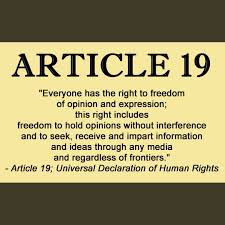Human rights in Pakistan are rooted in the Constitution, which guarantees fundamental freedoms such as equality, dignity, and justice for all citizens. Articles 8 to 28 outline these rights, including freedom of speech, religion, and protection from discrimination. Despite these provisions, significant challenges persist in ensuring their full realization.
Gender inequality remains a pressing issue, with women facing barriers to education, employment, and political participation. Minority communities, including religious and ethnic groups, often experience discrimination, violence, and marginalization. Freedom of expression is frequently restricted, with journalists and activists facing censorship and threats.
Pakistan has taken steps to address these issues through legislation and policy reforms, but implementation gaps and societal norms hinder progress. Strengthening human rights requires robust enforcement of laws, increased awareness, and efforts to promote inclusivity. Civil society and international organizations play a vital role in advocating for change and supporting vulnerable groups. By addressing these challenges, Pakistan can move closer to upholding human rights for all its citizens.
Human Rights
Human rights are fundamental freedoms and protections entitled to every individual, regardless of race, gender, religion, or status. They include the right to life, equality, freedom of speech, and access to justice. These rights are essential for dignity, fairness, and societal progress.
In Pakistan, constitutional provisions and international commitments aim to safeguard human rights. However, challenges like gender inequality, minority discrimination, and restricted freedom of expression persist. Addressing these issues requires effective implementation of laws, institutional reforms, and societal change.
Protecting human rights ensures inclusivity, justice, and the well-being of all citizens, fostering a more equitable and harmonious society.
Freedom of Speech
Freedom of speech is a fundamental pillar of democracy, yet in Pakistan, it is significantly restricted. Journalists, activists, and dissenting voices frequently face censorship, threats, and violence for challenging injustices or criticizing authorities. Laws like the Prevention of Electronic Crimes Act (PECA) stifle free speech and hinder information sharing. Protecting this right is crucial for promoting transparency, accountability, and civic participation in Pakistan.

Women’s Rights In Pakistan
Gender inequality persists as a widespread challenge in Pakistan, limiting women’s access to education, healthcare, employment, and political involvement. Women endure discrimination through honor killings, domestic abuse, and forced marriages. Despite legal measures and advocacy, societal norms and enforcement gaps sustain gender-based violence and marginalization. Promoting women’s empowerment via education, economic opportunities, and legal reforms is vital for achieving gender equality and safeguarding women’s rights.
Equal Rights For Minorities
Pakistan hosts a variety of religious and ethnic communities, but minority groups frequently endure discrimination, persecution, and violence. Blasphemy laws are often exploited to target religious minorities, resulting in wrongful arrests, mob attacks, and extrajudicial killings. Ethnic groups like the Baloch, Pashtuns, and Sindhi also face marginalization and human rights violations in specific areas. Safeguarding minority rights, encouraging religious tolerance, and ensuring equal citizenship are essential for promoting social unity and diversity in Pakistan.
Judicial Access
Access to justice is crucial for maintaining the rule of law and safeguarding human rights, yet many in Pakistan encounter obstacles in seeking legal remedies and defending their rights. The judiciary faces issues like case backlogs, corruption, and insufficient legal representation, especially for marginalized groups. Strengthening access to justice demands reforms to boost judicial efficiency, broaden legal aid, and support community-based conflict resolution methods.
Additional human rights concerns in Pakistan include.
Human Rights In Islam
- Islam emphasizes the inherent dignity and equality of all human beings, regardless of race, gender, or social status.
- The right to life is sacred in Islam; unjust killing or harm is strictly prohibited.
- Freedom of religion is upheld, allowing individuals to practice their faith without coercion.
- Islam protects the right to justice, ensuring fair treatment and equality before the law.
- The rights of women are safeguarded, including inheritance, education, and dignity.
- Islam condemns oppression and exploitation, advocating for the rights of the poor and vulnerable.
- The right to privacy and honor is respected, prohibiting slander and intrusion.
- Islam promotes economic rights, such as fair wages and the prohibition of usury.
- The rights of children and parents are emphasized, fostering care and respect within families.
- Islamic teachings encourage compassion, mercy, and the protection of all individuals’ fundamental rights.
Conclusions
Addressing human rights challenges in Pakistan requires collaborative efforts from government bodies, civil society, the international community, and individuals. Through raising awareness, pushing for policy changes, and backing grassroots initiatives, we can strive to build a fairer, more inclusive society where everyone’s rights and dignity are protected. As Pakistan progresses, prioritizing human rights is essential to ensuring lasting peace, development, and social justice for all.